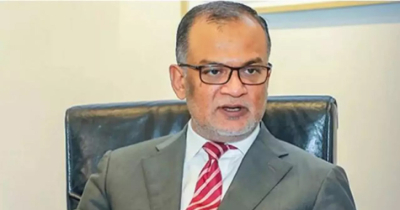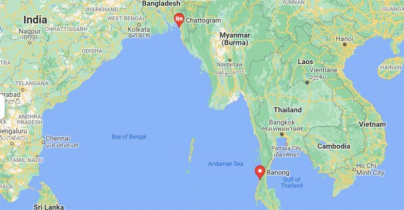Voices of Discontent and Calls for Reform Echo at IMF Spring Meetings

Washington, D.C. – The Spring Meetings of the International Monetary Fund (IMF) and the World Bank are in full swing in the U.S. capital, buzzing with back-to-back press briefings, high-level sessions, and global policy dialogues. For developing countries like Bangladesh, these meetings are more than symbolic—they set the stage for aid allocations, policy directions, and financial assistance pathways.
Kristalina’s Wake-Up Call for the Developing World
Kicking off Thursday’s sessions (April 24), IMF Managing Director Kristalina Georgieva delivered a blunt message at the day’s first press briefing. Speaking for a full 45 minutes, she laid out a clear diagnosis:
“The global economy is at a critical juncture—facing both stagnation and volatility. The biggest challenges for developing nations now are debt distress, inflation, and climate vulnerability.”
She made it clear that the IMF will stand by countries committed to courageous reforms.
“Take Loans, But Save the Planet”: A Fiery Call from Barbados
In the following session, world leaders took the floor—Georgieva, World Bank President Ajay Banga, U.S. Treasury Secretary Janet Yellen, and Barbados’ dynamic Prime Minister Mia Mottley. It was Mottley who stole the show with a powerful message on behalf of the Global South:
“We are drowning in debt and climate damage. We need a fairer system.”
Her key proposal: a ‘Debt-for-Nature Swap’—a model where debt relief is offered in exchange for environmental conservation. This could be an innovative path for climate-vulnerable countries like Bangladesh.
Ajay Banga stressed that climate responsibility shouldn’t fall solely on developing nations, and Kristalina reiterated that the IMF is now prioritizing green investments globally.
Asia-Pacific in Focus: Promise and Precaution
By mid-morning, IMF’s regional officials unveiled a detailed report on the economic outlook for Asia and the Pacific. The forecast was clear:
Asia—especially India and Southeast Asia—will be the engine of global growth in 2025.
But the warning signs for South Asia remain: export slowdowns, mounting debt burdens, and fiscal weaknesses. For Bangladesh, the IMF suggests:
- Enhancing revenue collection,
- Embracing the digital economy,
- Investing in climate-resilient infrastructure.
What This Means for Bangladesh
The meetings send a pointed message: countries that embrace reforms, ensure stability, and prepare for climate shocks will move ahead.
Bangladesh is currently under an IMF-supported loan program, making the takeaways from these meetings highly relevant for shaping its future economic strategies.
In an exclusive interview with News24 Television, former Bangladesh Bank Governor Dr. Salehuddin Ahmed stressed that while Bangladesh does need financial support, technical assistance and relationship-building with both IMF and World Bank are equally important.
He noted that two IMF tranches are still pending, and that the government seeks to maintain budgetary and technical cooperation with the World Bank.
Dr. Salehuddin also shared insights on U.S. policy towards Bangladesh, mentioning that the U.S. State Department holds a positive outlook on Bangladesh’s economic prospects.
Addressing concerns over potential tariff shocks under a Trump-style trade policy, he said the government is adopting a proactive stance, and he does not foresee any immediate negative impact. He emphasized the importance of stepping up reform efforts in line with IMF recommendations, particularly in the financial sector.
Final Word: A New Rhythm in Global Economics
The winds of change are blowing through Washington. If Bangladesh wants to stay in tune, it must act swiftly—deepening structural reforms, boosting resilience, and aligning with the new global order.
On Day 4 of the Spring Meetings (April 24), sessions also covered:
- Economic outlooks for the Middle East and Central Asia,
- A special Governor Talk by Ethiopia,
- And discussions on the future role of Artificial Intelligence in global finance.
Writer:
By Md Kamruzzaman
Special Correspondent, News24 Television, reporting from Washington D.C.





